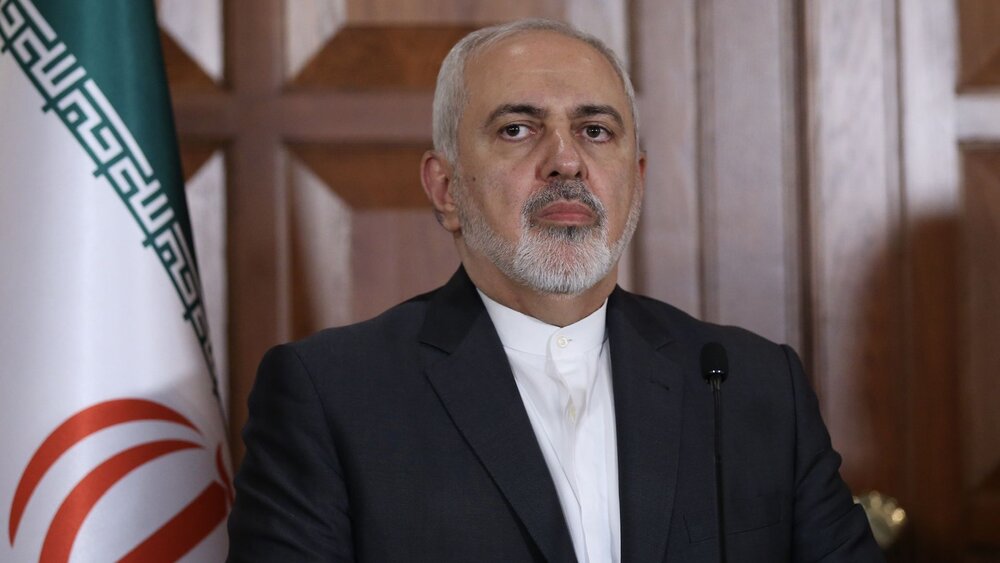Iran’s missile program not subject to negotiation, Zarif says

TEHRAN - Iranian Foreign Minister Mohammad Javad Zarif on Wednesday called the JCPOA a “strong agreement” which has been approved unanimously by the United Nations Security Council.
The UN Security Council adopted Resolution 2231 in July 2015 confirming the 2015 nuclear deal, officially known as JCPOA.
"We have a strong agreement that the Security Council voted unanimously for in a resolution co-sponsored by the United States," Zarif told reporters after a cabinet meeting.
The chief diplomat also rejected calls for negotiations on Iran’s defensive missile program, emphasizing “what is and what is not in the accord has all been agreed upon.”
“The first issue is the scheduling; this issue was one of the longest issues during the negotiations and it is impossible to renegotiate it. Americans need to abdicate this idea that they have always had and say, ‘What I have is mine and what you have can be negotiated.’ If this idea has influenced other countries, it will not influence the Islamic Republic of Iran,” the foreign minister noted.
Zarif added, "We agreed from the beginning (of nuclear negotiations) that regional and missile issues will not be negotiated in the JCPOA."
Under the terms agreed in the 2015 nuclear deal, the UN arms embargo on Iran expired on 18 October 2020.
Iran has been insisting that its missile program is exclusively deterrent and will not negotiate on it.
“We agreed restrictions on arms (purchase) continue for five years and limits on the missiles continue eight years,” Zarif reminded.
“This (missile) issue was raised but we refused to negotiate over it and we paid a price for not talking (about it).”
President Joe Biden’s secretary of state nominee said on Tuesday that the incoming administration would seek a “longer and stronger” nuclear agreement with Iran as he laid out a foreign-policy vision for the next four years.
However, Antony Blinken also said Washington is a “long way” from reaching a new accord with Tehran.
“We would have to see, once the president is in office, what steps Iran actually takes” and evaluate whether “they're coming back into compliance with their obligations,” Blinken told the Senate Foreign Relations Committee during his confirmation hearing on January 19.
Blinken said the 2015 agreement would be “a platform” for a “longer and stronger agreement” that would include other issues such as Iran’s missile program.
A professor from the George Washington University has suggested that Iran should not compromise on its defensive missile program in case the Biden administration is willing to rejoin the nuclear deal.
“Iran’s missiles should be non-negotiable,” Hossein Askari told the Tehran Times in an exclusive interview.
Professor Askari cites certain reasons why Iran should not forego its rights to defensive missile program.
“Iran is surrounded by adversaries, including the United States, who are much better armed with missiles, sophisticated planes and warheads and even nuclear warheads. And these countries have a history of attacking others, something that Iran has not done for centuries,” Askari noted.
Takht Ravanchi has had no negotiations with Biden team
Zarif also refuted a claim by the French newspaper that Majid Takht Ravanchi, Iran's representative to the UN, had consulted with Joe Biden’s team about the JCPOA in New York.
“He (Takht Ravanchi) just returned to New York on Monday, and will usually be quarantined for a week after his return,” Zarif added.
Zarif described the report by Figaro as “very incalculable”.
The French newspaper had reported that about three weeks ago, Biden’s pick for the UN Linda Thomas-Greenfield and her Iranian counterpart began behind-the-scenes negotiations.
